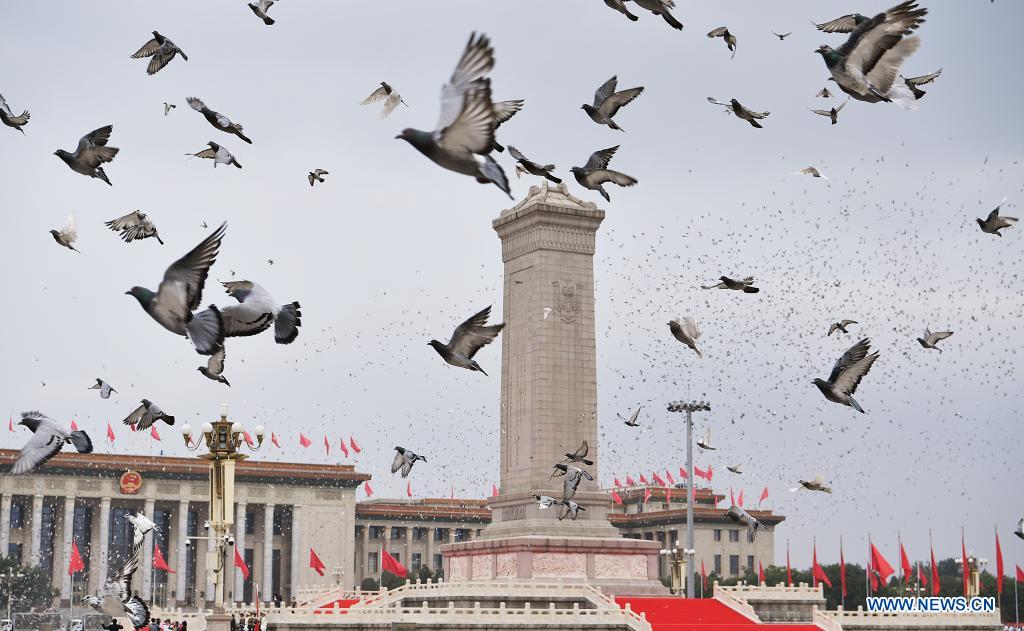Twisted translation panders to prejudice against China
- By Liu Qiang
 0 Comment(s)
0 Comment(s) Print
Print E-mail China.org.cn, July 8, 2021
E-mail China.org.cn, July 8, 2021
In communication, the use of metaphors is a double-edged sword. Metaphor is defined by Aristotle as "the application to one thing of the name of another thing." It is always risky to translate metaphor-loaded terms from Chinese to English as China and the English-speaking world are immensely disparate - not only in the use of metaphors, but also in the broader culture.
On July 1, Chinese President Xi Jinping, in his speech to mark the centenary of the Communist Party of China (CPC), said metaphorically: "谁妄想这样干,必将在14亿多中国人民用血肉筑成的钢铁长城面前碰得头破血流!"
Xi's words were a stern warning to any external forces who attempt to bully China. Metaphorical expressions like "血肉铸成" (literally "forged by blood and flesh") and "头破血流" (literally "head breaks, blood flows") are both household phrases among Chinese people. For example, when we use the second of these phrases to say someone won't change course until the ironclad truth makes him "头破血流", we are using it in a figurative rather than literal sense, meaning "suffer a total failure."
Likewise, anyone who has a decent command of the Chinese language knows that Xi's words cannot be translated in a narrow sense. This mode of translation will unreasonably highlight the "bloody imagery" in the source language, projecting fear and terror among the target audience. Unfortunately, some international news media jumped to this method to make a splash at the cost of professionalism.
In the official translation published by Xinhua News Agency, the sentence was rendered as: "Anyone who would attempt to do so will find themselves on a collision course with a great wall of steel forged by over 1.4 billion Chinese people."
The "bloody" elements are appropriately omitted in the translation. In fact, this noticeable omission is more about staying true to the "tenor" of the Chinese language - i.e. the concept meant by the metaphor - rather than intentionally "softening" the tone. Xi's metaphorical expressions were aimed at conveying the determination of the CPC and the Chinese people to fend off any unfair treatment.
As German translation theorist Rudolf Walter Jumpelt put it: "It is axiomatic that some feature of a given text in a given language cannot be reproduced in another language. ... Some features of the original must take precedence over other, i.e., some must be considered relatively more important than others."
When translating Xi's words into English, this same logic applies. The "tenor" of Xi's words "must take precedence over" the "bloody and violent imagery." Instead of letting their imaginations run wild, international news media, if they are serious about "fair and balanced reporting," should adopt a humble attitude to listen and to grasp the "relatively more important" features of the original text.
Translating metaphors is always a test of a translator's skill and experience. But resorting to a word-for-word approach in dealing with a text loaded with culture and metaphor is by no means faithful. Unfaithful translation can be rash and dangerous.
As President Xi said on July 1, the Chinese nation carries no aggressive or hegemonic traits in its genes. A twisted translation simply panders to the prejudice that China is belligerent. It is important to realize that translation is a bridge between different cultures - one which is supposed to make the world better not worse.







Go to Forum >>0 Comment(s)